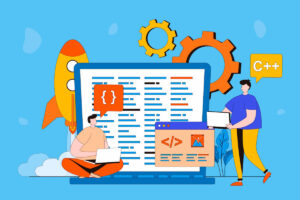Low code platforms have become increasingly popular in the world of software development due to their ability to streamline the development process and reduce the need for manual coding. However, with the convenience of low code platforms also comes the potential risk of security vulnerabilities. This is especially true when using PHP low code platforms, as PHP is known to have its own set of security challenges. In this article, we will explore some best practices for ensuring security when using PHP low code platforms.
Understanding Security Risks in PHP
Before diving into best practices for ensuring security with PHP low code platforms, it is important to understand the potential security risks that come with using PHP. Some common security vulnerabilities in PHP include:
- Cross-site scripting (XSS) attacks
- SQL injection attacks
- Cross-site request forgery (CSRF) attacks
- Remote code execution
- Insecure file uploads
These vulnerabilities can leave your application susceptible to attacks from malicious actors, leading to data breaches and other security incidents.
1. Keep PHP and Libraries Up to Date
Keeping your PHP version and libraries up to date is crucial for ensuring security in PHP low code platforms. Updates often include security patches that address known vulnerabilities, so staying current is essential for keeping your application secure. Additionally, regularly updating your PHP version and libraries can help improve performance and maintain compatibility with the latest technologies.
2. Use Secure Coding Practices
Following secure coding practices is essential when using a PHP low code platform to minimize the risk of security vulnerabilities. This includes validating user input to prevent malicious code injection, escaping output to prevent cross-site scripting attacks, and using parameterized queries to protect against SQL injection attacks. By incorporating secure coding practices into your development process, you can reduce the likelihood of security breaches.
3. Implement Role-Based Access Control
Role-based access control (RBAC) is a security measure that restricts access to certain parts of an application based on the user’s role. Implementing RBAC in your PHP low code platform can help prevent unauthorized access to sensitive data and functionalities. By defining roles and permissions within your application, you can ensure that users only have access to the information and features necessary for their specific role, enhancing overall security.
4. Secure File Uploads
File upload functionality is a common feature in web applications, but it can also pose a security risk if not implemented correctly. When allowing users to upload files in your PHP low code platform, be sure to validate file types, check file sizes, and store uploads in a secure location. Implementing file upload restrictions and conducting regular security checks can help prevent malicious files from being uploaded and protect your application from potential threats.
5. Monitor and Audit Application Activity
Monitoring and auditing application activity is essential for detecting and responding to security incidents in real-time. By keeping track of user actions, system events, and other activities in your PHP low code platform, you can quickly identify and investigate potential threats. Implementing logging mechanisms and security monitoring tools can help you track suspicious behavior and take proactive measures to safeguard your application.
6. Regularly Perform Security Testing
Regularly conducting security testing, such as penetration testing and code reviews, is critical for identifying and addressing vulnerabilities in your PHP low code platform. By proactively testing your application, you can identify security weaknesses and address them before they are exploited by malicious actors. Engaging in regular security testing can help enhance the overall security posture of your PHP low code platform and protect it from potential threats.
Conclusion
In conclusion, ensuring security with PHP low code platforms requires a proactive approach that includes staying up to date on security best practices, implementing secure coding practices, and regularly testing for vulnerabilities. By following the best practices outlined in this article, you can help protect your PHP low code platform from security threats and ensure the safety of your application and data.
Have any questions about security best practices for PHP low code platforms? Feel free to contact us and our team will be happy to help!
FAQs:
1. What are some common security vulnerabilities in PHP low code platforms?
Common security vulnerabilities in PHP low code platforms include Cross-site scripting (XSS) attacks, SQL injection attacks, Cross-site request forgery (CSRF) attacks, Remote code execution, and Insecure file uploads.
2. How can I ensure security in PHP low code platforms?
To ensure security in PHP low code platforms, you can keep PHP and libraries up to date, use secure coding practices, implement Role-Based Access Control (RBAC), and secure file uploads by validating file types, checking file sizes, and storing uploads in a secure location.
3. Why is it important to keep PHP and libraries up to date in PHP low code platforms?
Keeping PHP and libraries up to date is essential in PHP low code platforms because updates often include security patches that address known vulnerabilities, helping to keep your application secure.
4. What is Role-Based Access Control (RBAC) and why is it important in PHP low code platforms?
Role-Based Access Control (RBAC) is a security measure that restricts access to certain parts of an application based on the user’s role. Implementing RBAC in your PHP low code platform can help prevent unauthorized access to sensitive data and functionalities.












+ There are no comments
Add yours